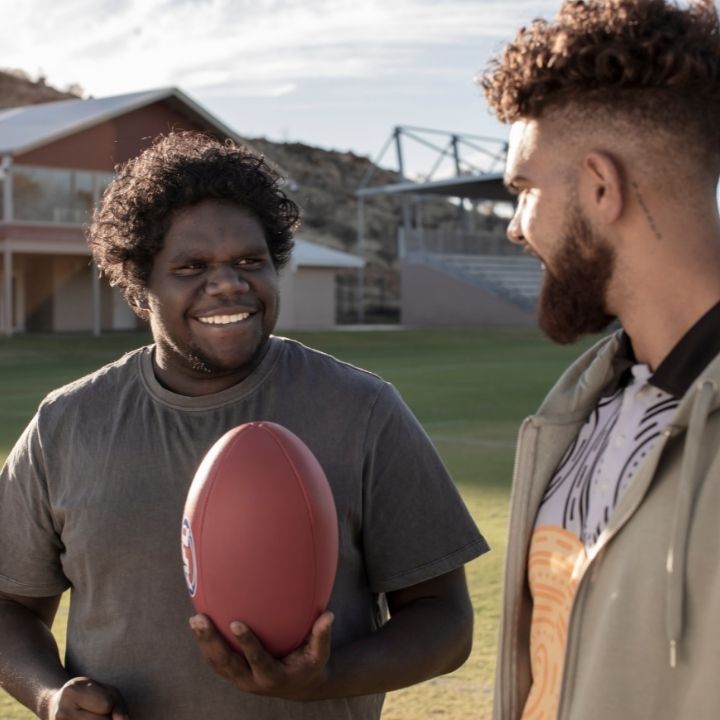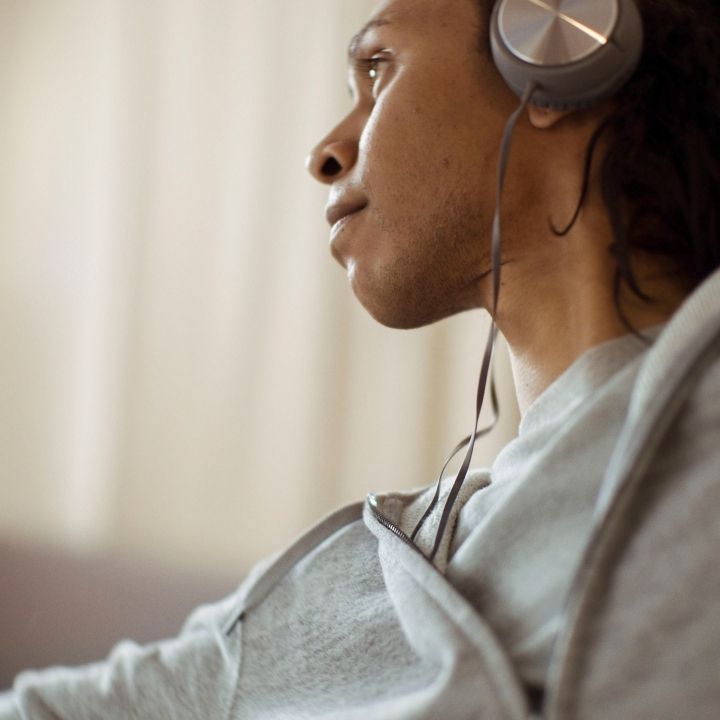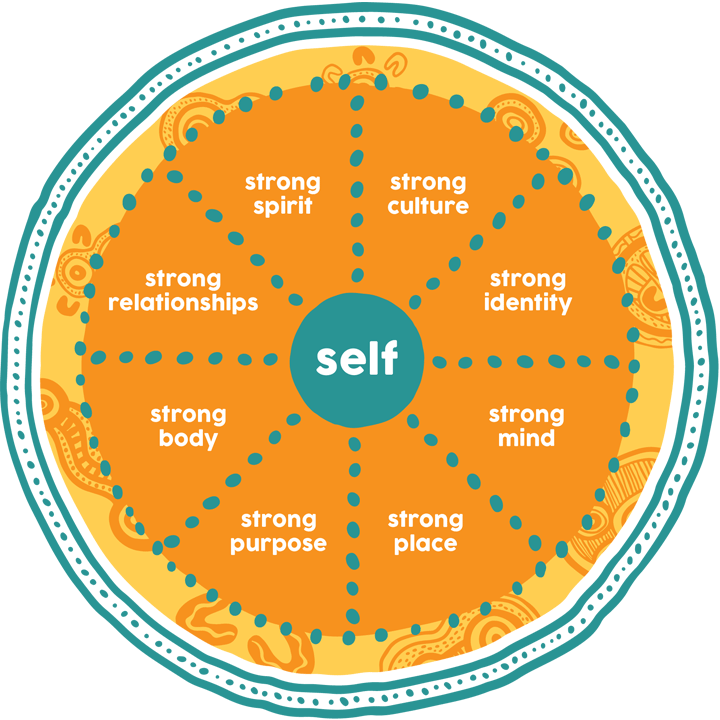What is it?
Our bodies come in different shapes and sizes - there is no one shape and size that is better than others. Being strong in body is more than muscles and fitness, it is also being connected to your body and being thankful for all it allows you to experience in life. For some people, a strong body means being able to dance in ceremony, but for others it might be running a full game of footy or netball. Getting to know your body, and how to look after it your way can help make your body feel stronger. Being strong in body can help you feel stronger mentally, culturally, and spiritually.
How to look after your strong body
Moving your strong body
You might have heard that to have a strong body you need to exercise and eat well. Your body is made to move, figure out what ways you enjoy moving it!
How can you move your body?
- try walking or riding a bike to school or work rather than getting a lift, catching the bus, an uber or taxi
- gaming is fun and can actually be good for your wellbeing, just remember to take lots of breaks and get up and cut a few laps of the house when you play
- swim, surf, get in the water
- go to the gym, play footy, basketball or another sport you love
- dance, bushwalk or do whatever you enjoy doing that’s active a little more often.
Feeding your strong body
Eating well is important for your body and brain. Your body is fuelled and nourished by what you eat. Think of it like this, if you put dirty fuel in a car, it will run badly and if you keep putting dirty fuel in it, eventually you will damage the engine. Your body is no different, if you fuel it with junk food you won’t be at your best. Eating healthy food is the best way you can protect yourself from developing diseases like diabetes or heart disease in the future.
- if you can, try get your hands on some bush tucker or kai kai. Replace beef for kangaroo or eat less rice or damper and more vegetables. Our traditional foods are far better for us and our country than anything that has been introduced!
- eat fresh foods like fruits and vegetables, eggs, lean meat and fish
- instead of grabbing a chocolate bar when you’re peckish grab a piece of fruit
- throw a few slices of fresh orange or lemon in your water bottle each morning for a delicious drink rather than going for the sugary stuff, like soft drink
- you could even go a healthy sandwich.
Recharging your strong body
It is important to recharge your strong body. This can sometimes be hard to do when you’ve got a lot going on. Getting enough sleep is one way to make sure your strong body is ready to do the things you want it to do. Sleep is important as it allows your body to recover and is important for looking after your mind.
- take a break from screens like your phone, iPad or tv about an hour before bed
- to help get ready for sleep try some wind down activities before bed like a walk or yarn with family
- if you find it hard to switch off you might try some quiet time
- avoiding drinks with caffeine, alcohol and other drugs can be a helpful way to help get a good night sleep
- starting a new routine can take time and practice.
- Indigenous Hip Hop Projects – Coen Central remix
- Deadly Choices - Nutrition, Good Quick Tukka Recipes, Physical Activity fact sheets
- Telethonkids - Nutrition and being active guide and healthy eating poster (p.6)
- Creative Spirits - traditional games and activities
- headspace - Download and create your own Stronger You wheel
- WellMob - Social, emotional and cultural wellbeing online resources for Aboriginal and Torres Strait Islander People
If you need help planning your next move to keeping a strong body try getting in touch with your local Aboriginal and or Torres Strait Islander health service or your local GP. They might refer you to other health professionals like a nutritionist or dietician who can help you make a food plan, an exercise physiologist who can help you make an exercise plan for your body or even a psychologist who can help you make a make a plan for your mind and body.
Discover the wellbeing wheel
This resource has been developed in partnership with the headspace Aboriginal and Torres Strait Islander Youth Reference Group (Womenjeka Reference Group), Marumali Consultations, the headspace National Aboriginal and Torres Strait Islander Advisory Group and headspace National.
The headspace Clinical Reference Group oversee and approve clinical resources made available on this website.
Last reviewed 1 July 2021.
Wellbeing wheel reference:
Gee, G., Dudgeon, P., Schultz, C., Hart, A, & Kerrie, K. (2014).Aboriginal and Torres Strait Islander Social and Emotional Wellbeing. In P. Dudgeon., H. Milroy, & R. Walker (Eds.), Working together: Aboriginal and Torres Strait Islander mental health and wellbeing principles and practice (2nd Ed.) (pp. 55-68). Canberra: Commonwealth of Australia.
Get professional support
If you feel you need help there are a range of ways we can support you.


